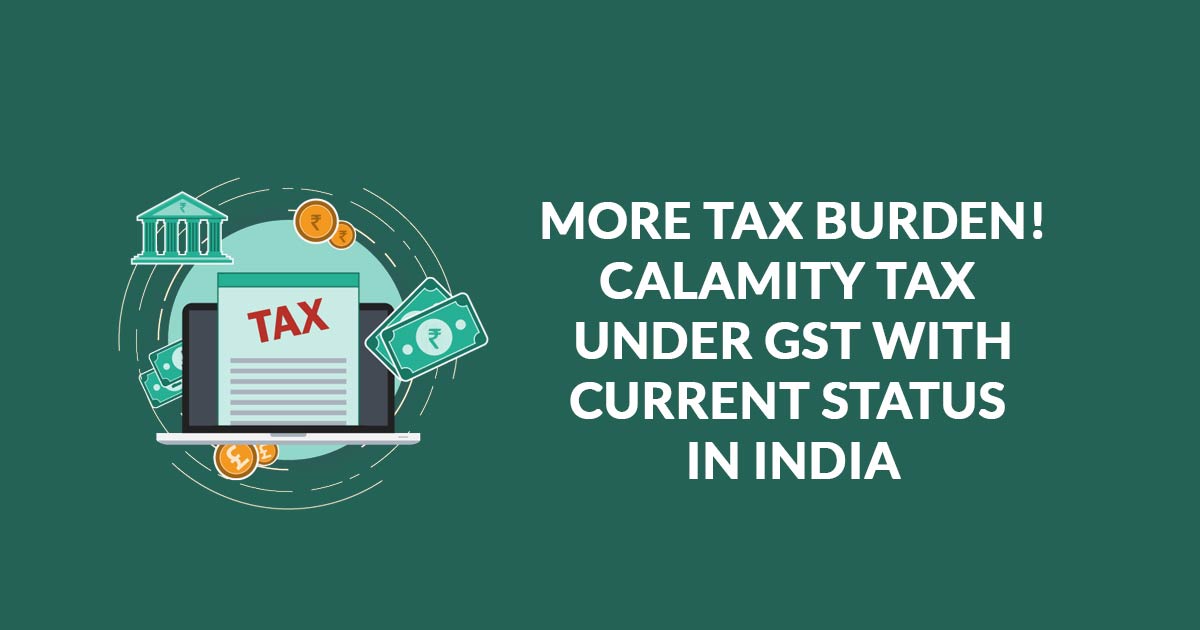The reason being for why the calamity tax is being discussed in the GST meetings has an evident while seeing recent times. Climate concerns have been on the lips of many prominent world leaders. India has also been very vocal about the negative and disastrous effect of climate change. The recent floods in Kerala left 1,028,073 people in relief camps and the official death toll stands at 252. Experts believe that Kerala Floods caused an estimated $2.7bn worth of damages.
Natural Calamities, for natural or human-made reasons, cause a lot of damage in the form of lost human lives, dead livestock, damage to properties roads and huge tracts of farmland, food shortage, communication outage etc. In the last two decades, the total loss caused by natural calamities in India stands at $79.5bn. This loss is required to be filled through a proper loss recovery mechanism which can be only justified by the recently discussed calamity tax under GST.
The recent proposal by a panel of state finance ministers to levy a Calamity Tax under the goods and services tax (GST) seems a logical step ahead to compensate for the economic loss as well as help expedite the relief work.
Finally the 1% ‘calamity cess’ is official and it will give power to Kerala to levy additional cess till 2 years for the rehabilitation activities being carried out in the state which was earlier hit by the massive floods. More
What is Calamity Tax Under GST?
Calamity tax is an additional cess or surcharge applicable on the all the goods and services or prescribed goods and services of the state hit through the disaster. The GST council is looking through some of the methods and mechanism to levy additional cess and surcharge on the pre-decided GST tax rate.
India is prone to many natural disasters occurring from time to time, which comes up with the idea of calamity tax under GST.
Why Calamity Tax for India?
National Disaster Relief Fund (NDRF) was not enough to compensate for the state-specific or nationwide losses. The newly Panel of 7 state finance ministers is presided by Sushil Modi who also happens to be the Deputy Chief Minister Bihar. Reportedly, Bihar faces quantum losses each year due to floods. Last year itself, Bihar witnessed one of the worst flood disasters in the Nation and State’s history.
Kerala has also has presented a plan in this regard before the GST Council. The disaster cess or tax will help the people overcome the losses suffered due to the recent floods. A proper mechanism would be put into place to effectively collect, allocate and distribute funds to recover the losses.
National Disaster Relief Fund (NDRF)
From the last 4-5 years, the savings of National Calamity Contingent Duty (NCCD) is contributed to NDRF. The collection of NCCD has come down from Rs 6,450 crore in 2016-2017 to Rs 3,660 crore in 2017-2018. The disaster cess or tax will help tremendously to revive the falling NDRF funds.
“Already there is the section in the Constitution Amendment Bill itself which says, GST Council shall make recommendations to the union and the states on any special rates or rate for a specified period to raise resources at the time of natural disaster,” Modi said.
Recommended: Fat Tax in India: All You Need to Know
Climate Change And Floods
The Indian Peninsula, owing to its geography, is most prone to natural calamities like cyclone, earthquakes, and floods. However, off late, climate change has also played more than a prominent role in triggering natural calamities living millions of people homeless, hungry and in extreme poverty. Since the year 2000, the frequency of floods in the Indian Subcontinent has grown by manifold. The last decade itself has witnessed Eight disastrous floods. Keeping this in mind, the move to add a ‘disaster cess or calamity tax‘ to the GST framework seems a positive approach in this regard. But, as they say, prevention is better than cure, it would be more effective if the ‘disaster cess or tax’ amendment in GST law is coupled with stringent norms to check pollution as well as compel common Indians and Industries to respect and care for the environment.
